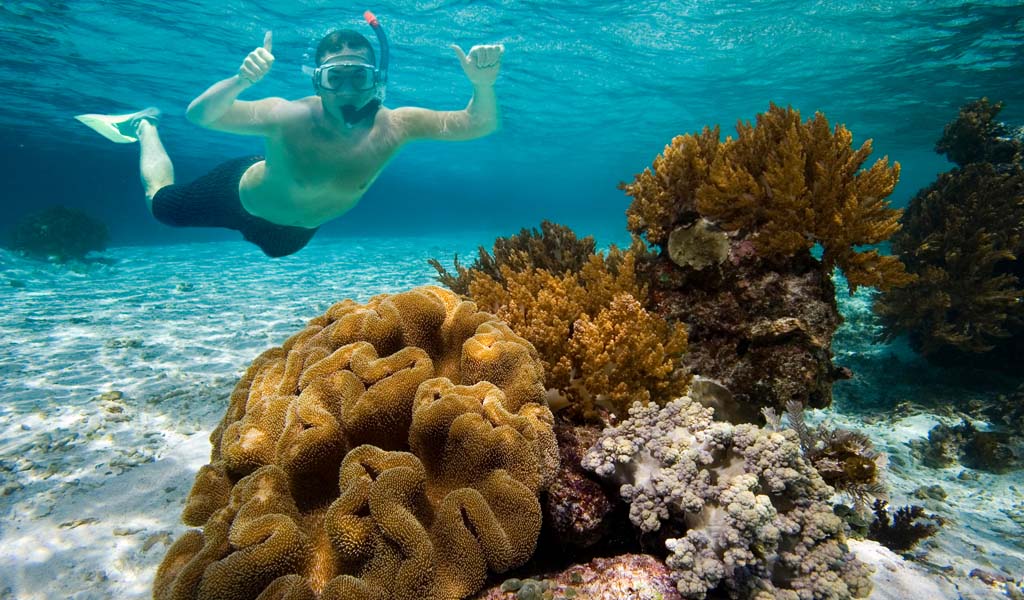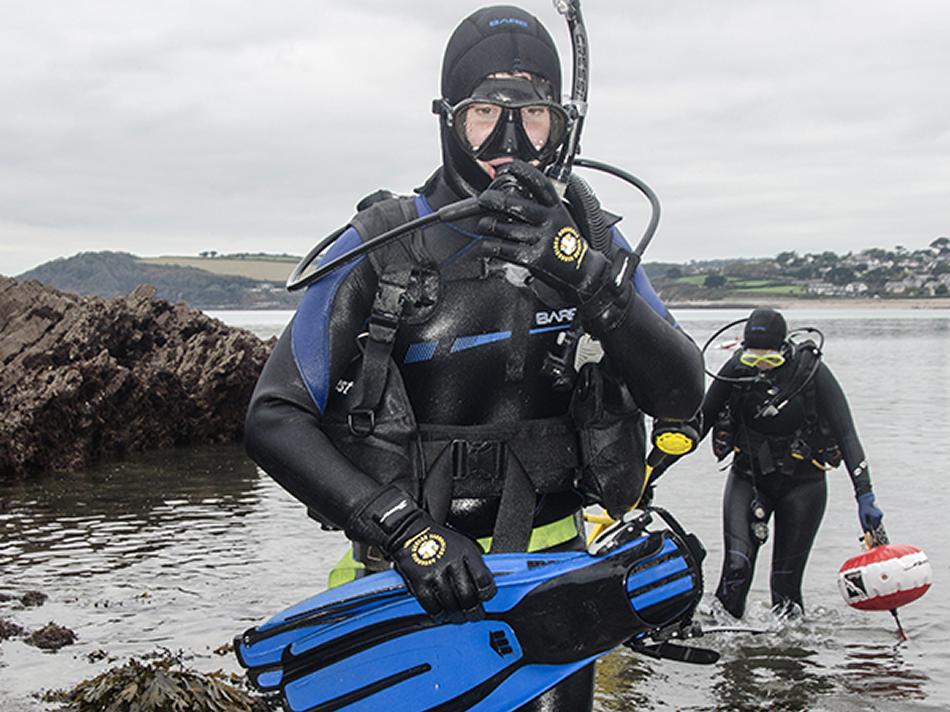
A self-proclaimed snorkelling geek, Marg Baldwin explores the environmental impact of the sunscreen and insect protection that snorkellers need to take into account when travelling overseas.
When they arrive, without fail, they try to entice me to visit all sorts of exotic places armed with my trusted snorkel.
A recent arrival in my inbox invited me to book for 12 days in the Philippines in November 2021. My plans for 2021 are UK based to make up for the trips I have missed this year! However, I am sure there will be other snorkellers who will be trying warm water, sun, and coral reefs possibly over the British winter months or throughout 2021.
Having decided against the Philippines, other things then drew my attention including the use of sunscreens to prevent sunburn and insect repellents used in tropical places to guard against mosquitos, and the damage these products can cause to coral reefs. We do (occasionally) use sunscreen in the UK but mosquitoes do not usually bother us too much, although on West Coast of Scotland and elsewhere in the summer the midges (‘wee beastie’s’) make their presence felt and we may resort to insect repellents. Although we do not have extensive coral reefs, it is still appropriate to consider the impact these products can have on the environment and marine life wherever we are in the world.
Sunscreens
As well as looking for the Sun Protection Factor – the SPF number, do look at the chemicals used to make the product. Chemicals like oxybenzone can seep into the water, where they may be absorbed marine life including corals. These substances contain nanoparticles that can disrupt coral's reproduction and growth cycles, ultimately leading to bleaching. Avoid using aerosols as they can miss their target and finish up on the sand – and easily washed into the Ocean.
Do research the resort you are planning to visit as some are now banning the use of sunscreens which are known to contain chemicals which can damage their reef systems. Reef friendly sunscreens are available. Do think about including the SPF in what you are wearing such as hats, shirts, skinsuits and wetsuits. Such UV protection can reduce the amount of sunscreen you need by 90% and such items will last longer and are likely to be more environmentally friendly than a bottle of sunscreen.
Insect repellents
There are a few effective insect repellent ingredients that are recommended for protection against mosquitoes that spread disease. Possibly the main and most well-known one is Deet. This is perhaps the least recommended by anyone who is concerned for the health of coral reefs. It is known to melt plastics and synthetic fabrics, especially seals. Most travel clothing is made of nylon or other synthetic fabrics which can melt when they are in contact with Deet. Deet It is a member of the toluene family which is used in rubber and plastic cement and paint removers, so it will cause damage to a reef system and all the life living in and on it. Some countries have banned Deet and some manufacturers of insect repellents have removed it from all but its ‘strongest’ products.
An alternative chemical insect repellent is Picaridin (USA) or Icaridin (elsewhere). It does not have the melting plastics and fabrics problem but has similar effectiveness in repelling the mosquitos although it could be toxic to fish and invertebrates. Deet applied over sunscreen decreases SPF effectiveness by one third. As with staying out of the sun the message is cover up with clothing particularly at dawn and dusk when mosquitos are most active.
UK snorkelling
Here in the UK our suits and accessories avoid too much of us being exposed and covering up after snorkelling to get warm also helps. If we need to use sunscreens and/or insect repellents remember to use them sparingly. Put them on well before you go into the water, to allow time for them to be absorbed into the skin and to reduce the wash off factor.
Think safe - snorkel & dive safe
Marg Baldwin
Find out more about snorkel training.

 Author: Marg Baldwin | Posted 25 Oct 2020
Author: Marg Baldwin | Posted 25 Oct 2020



